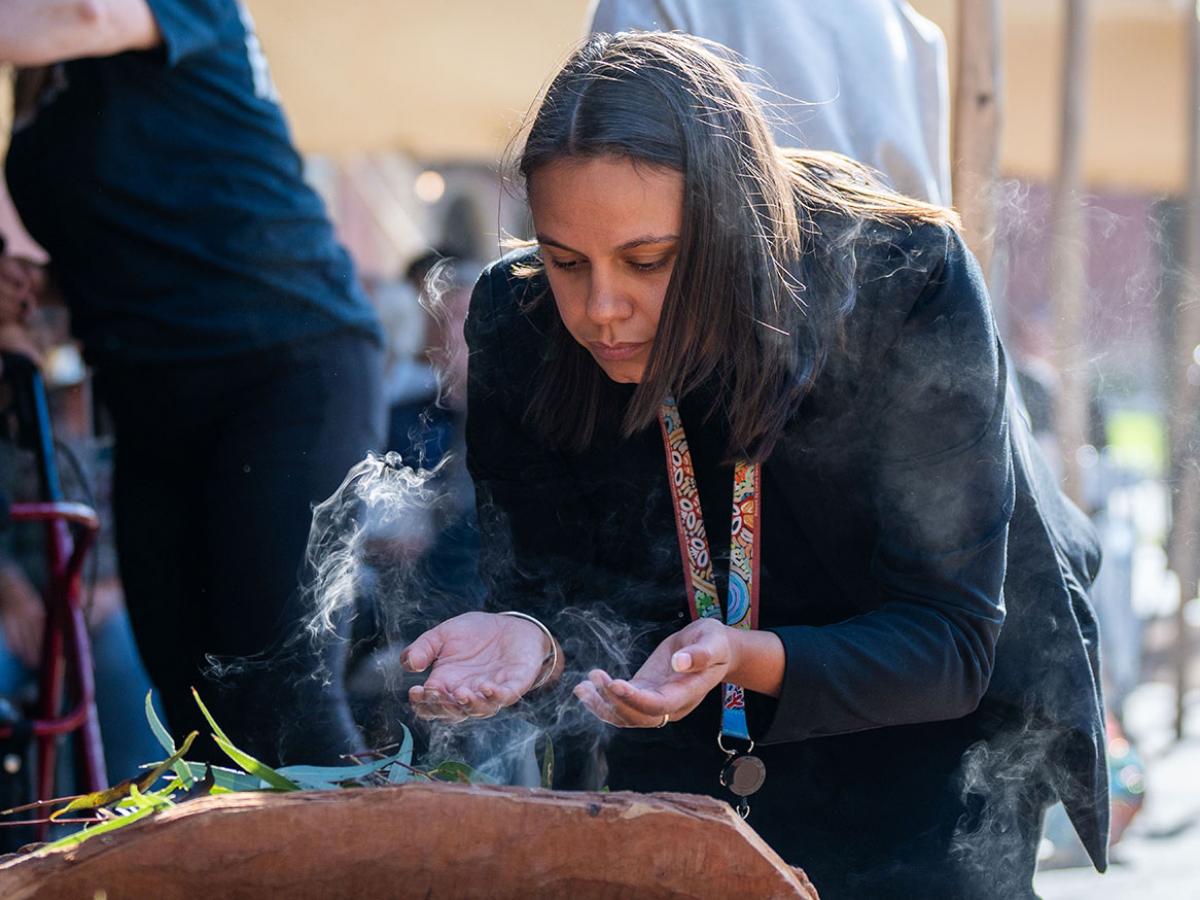Aboriginal and Torres Strait Islander Employment Strategy

The Aboriginal and Torres Strait Islander Employment Strategy works within and alongside the University's Strategic Plan 'Future Making’ and the University's Enterprise Agreement.
The strategy aims to increase Aboriginal and Torres Strait Islander participation at the University of Adelaide by offering employment opportunities and sets a bold population parity target of 3% participation by 2030.
The strategy also promotes the retention and advancement of the University's current Aboriginal and Torres Strait Islander staff through scholarships and professional development opportunities and activities.
The University's guiding principles to enhance Aboriginal and Torres Strait Islander employment outcomes include:
- Recognition and value of the diversity of Aboriginal and Torres Strait Islander cultures, knowledges, experiences, histories and geographical locations
- Recognition and inclusion of prior learning and life experiences relating to transferring skills relevant to specific positions.
- Respect for Aboriginal and Torres Strait Islander knowledge systems and processes and recognition of the significant contribution of this knowledge to the University.
- Equity of access for recruitment, retention, selection and promotion in both mainstream and designated career pathways
- A workplace free of racism, sexism, and ethnocentrism for a formalised process of dealing with these matters.
For further information, contact wirltu.yarlu@adelaide.edu.au.
-
Indigenous employment history
The University of Adelaide's first Aboriginal and Torres Strait Islander Employment Strategy, which ran from 1995 to 1999, focused on increasing its Aboriginal and Torres Strait Islander staffing.
In 2005, the University of Adelaide employed its first Indigenous Employment Officer to facilitate the development of the employment strategy phase between 2006 and 2009. During this phase, a greater focus and effort were placed on increasing Aboriginal and Torres Strait Islander staffing numbers, with three years of Strategic Initiatives Funding allocated to fund positions out of the Division of the Deputy Vice-Chancellor and Vice-President.
In March 2009 (the end of the second strategy phase), the University reported that only 16 members of its staffing establishment were Aboriginal and Torres Strait Islander (0.52% FTE), two less than at the beginning of its implementation stage in 2006. This low figure demonstrated a need for a more significant commitment and revised approach to the attraction, recruitment, development, and retention of Aboriginal and Torres Strait Islander staff.
At the end of 2009, the University implemented a new investment funding model to complement the existing strategy further. The funding model included seed funding being made available to Faculties and Divisions over three years, sponsored by the Division of the Deputy Vice-Chancellor and Vice-President (Academic), which provided a long-term and sustainable approach for recruiting and retaining Aboriginal and Torres Strait Islander staff.
As a result of the new funding model, Aboriginal and Torres Strait Islander employment numbers increased by 56.25%, from 16 to 25, between 31 March 2009 and 31 March 2012. On 31 March 2013, the University reported (unofficially) 36 Aboriginal and Torres Strait Islander staff, approximately 1.0% FTE.
The University of Adelaide's new Aboriginal and Torres Strait Islander Employment Strategy has no end date. It includes the 3-year investment funding model, a new cadetship program for undergraduate students, implemented with the Australian Government's Indigenous Cadetship Support Program, and a population parity target of 2% for Aboriginal and Torres Strait Islander employment by 2023.
The ongoing development of programs further demonstrates the University's commitment, through the Division of the Deputy Vice-Chancellor and Vice-President (Academic), to foster Aboriginal and Torres Strait Islander employment and engagement.
